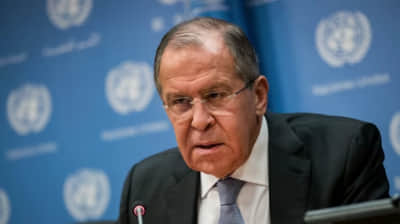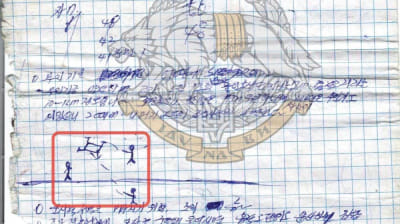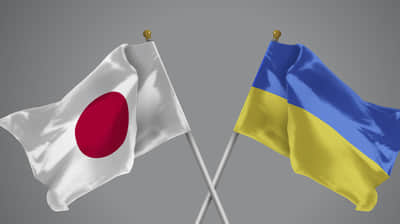IAEA promises to oversee Russian personnel as they put power unit No 6 at Zaporizhzhia NPP into hot shutdown mode
Russian forces occupying Zaporizhzhia Nuclear Power Plant (ZNPP) will put power units into hot shutdown mode after an accident at power unit No 4, despite contradicting the order issued by the State Nuclear Regulatory Inspectorate of Ukraine. The International Atomic Energy Agency (IAEA), the UN nuclear watchdog, said this was a forced measure and promised to oversee the Russians’ actions.
Source: IAEA Director General Rafael Mariano Grossi in a statement
Details: The IAEA said that the ZNPP’s power unit No 4 was being transferred from hot shutdown to cold shutdown today, following detection of a water leak at one of its four steam generators located in the unit’s containment; power unit No 6 will also be put into hot shutdown mode.
Over the course of the next three days, the ZNPP will move unit No 6 to hot shutdown "to continue steam production on site," IAEA said.
The UN nuclear watchdog also reported that Ukraine’s national nuclear energy regulator, the State Nuclear Regulatory Inspectorate of Ukraine (SNRIU) "has issued regulatory orders to limit the operation of all six units to a cold shutdown state".
On Thursday, 10 August, the 750kV Dniprovska power line disconnected twice: first for approximately 12 hours until 13:37, and then again at 16:13 Kyiv time. As of Thursday evening, it remained disconnected.
"These disconnections of the 750 kV power line mean that the ZNPP has had to rely on its only remaining off-site power line, the 330 kV backup line, to supply the electricity that is required, for example, to perform safety functions such as pumping cooling water for the plant," the IAEA said.
In this context, the IAEA said the transfer of power unit No 6 to the hot shutdown mode was a forced measure.
"The IAEA team on the site will closely monitor the operations for the transition between the shutdown states of Units 4 and 6," the IAEA statement said.
The IAEA also said that power unit No 6 has been in cold shutdown since 21 April, "to enable inspection and maintenance of the safety systems".
During the week, the IAEA experts were informed that the ZNPP has been conducting specific maintenance on parts of safety systems on unit No 6. Russian staff controlling the ZNPP said that "this work and all tests of the safety systems were successfully completed before commencing the transition of unit No 6 to hot shutdown".
The availability of cooling water remains relatively stable at the ZNPP, IAEA said. "While the height of the ZNPP cooling pond continues to drop by about 1cm per day, the height of the discharge channel from the neighbouring Zaporizhzhya Thermal Power Plant (ZTPP) is regularly being topped up by pumping water from the ZTPP inlet channel," the IAEA statement read.
The IAEA also said that its experts carried out several inspections at the ZNPP over the past week. On 8 August, the team found a number of military trucks parked in an area reserved for vehicle maintenance in the turbine hall of unit No 2.
"While the team did not observe mines or explosives in any new locations during the past week, they did confirm the presence of the mines previously observed on 23 July 2023," IAEA said.
On Thursday, 10 August, IAEA experts also inspected a fresh fuel storage facility and confirmed that fresh fuel is being stored safely and securely.
Background:
- An incident has occurred with water leaking from the first reactor circuit into the second after power unit No 4 at the Russian-occupied Zaporizhzhia Nuclear Power Plant (ZNPP) was transferred to hot shutdown mode, in violation of the licence conditions and Ukrainian nuclear energy operator Energoatom’s requirements. There was no radiation leak into the environment.
- Energoatom believes that Russian occupiers deliberately damaged power unit No 4, "which led to the violation of the integrity of three of the five existing physical barriers to the spread of radiation, the leakage of potentially radioactive water from the first circuit beyond the established limits, and damage to the expensive equipment of the first circuit, will be investigated," Energoatom President Petro Kotin said.
Ukrainska Pravda is the place where you will find the most up-to-date information about everything related to the war in Ukraine. Follow us on Twitter, support us, or become our patron!





